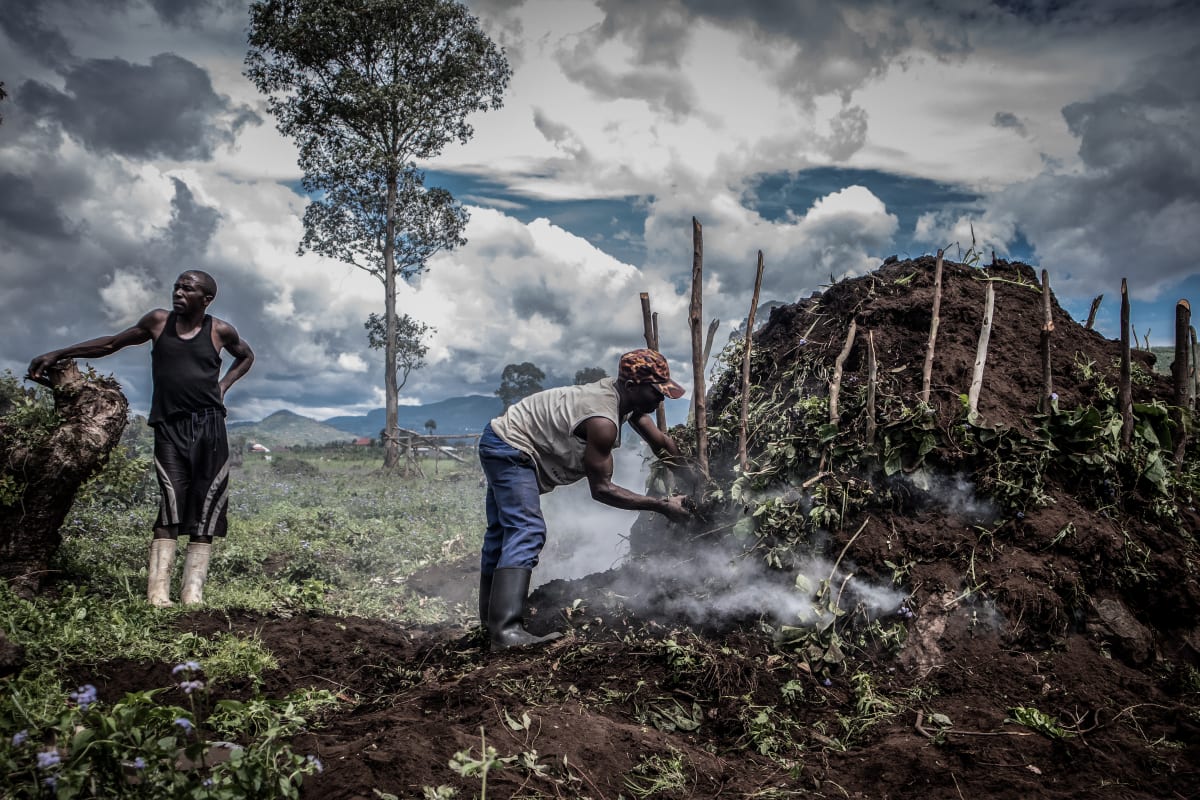The Bronx Documentary Center’s latest exhibition, Congo in Conversation, displays the environmental, economic and social problems that afflict the Democratic Republic of the Congo (DRC) while highlighting the work of various Congolese photographers.
At the same time, the exhibit seeks to display the country in a more humanized and nuanced view.
“Congo is perceived as being this kind of tragedy of a country that is war, violence and hunger and desperation and there’s absolutely a lot of that,” said Finnbarr O’Reilly, a British-Canadian photojournalist who launched the collaborative project. “But the focus of this work was to show daily life and another side.”
An opening reception for the photo exhibit that drew more than 30 people was held Friday at the Center.
One photograph shows a group of Congolese artisanal miners deep in the mud working to extract from the ground the various natural resources the DRC is rich in, including cobalt and coltan.
Other photographs display the country’s response to the pandemic, in which youth in hazmat suits and face masks carry signs to fight misinformation about the disease and to promote the COVID-19 vaccine.
Initially, O’Reilly had planned to spend six months doing the photo reportage himself after receiving a generous grant from the Foundation Carmignac. But when the pandemic hit, he arranged to work closely with a group of about a dozen Congolese journalists. The work was published online, congoinconversation.fondationcarmignac.com/, and has become the traveling exhibit now on display in the Bronx.
The project allowed Congolese journalists to record their country’s own visual history, rather than having outsiders “parachute” in to do it, O’Reilly said. It also allowed those journalists to build a community and be recognized abroad for their work. The result is that many now work regularly for international news outlets like The New York Times, the Associated Press and the Agence France-Presse, O’Reilly said.
Photojournalist Anthony Artis, who recently photographed Tigrayan refugee campsites in Sudan, was particularly intrigued by the photo taken by Guerchom Ndebo documenting Congolese men transporting large bags of coal on their bikes while walking on flooded roads He termed the photo “powerful and expressive.”
“I really love the photos of the hair,” said Eva Humphry, pointing at images by Congolese photographer Raissa Karama Rwizibuka of women in traditional threaded hairstyles, twisting and threading each others’ hair. Another Rwizibuka photo that captured her fancy portrayed Congolese men showing off blue and gold patterned outfits and unique leopard print accessories. “Their style is amazing, it’s beautiful,” she said.
Humphry was visiting her mother in the South Bronx when she learned of the exhibit. “It’s my first time at the center, but I kind of wish I lived here so I could come more often,” she said.
The exhibit will run at the Bronx Documentary Center through Oct. 16.

